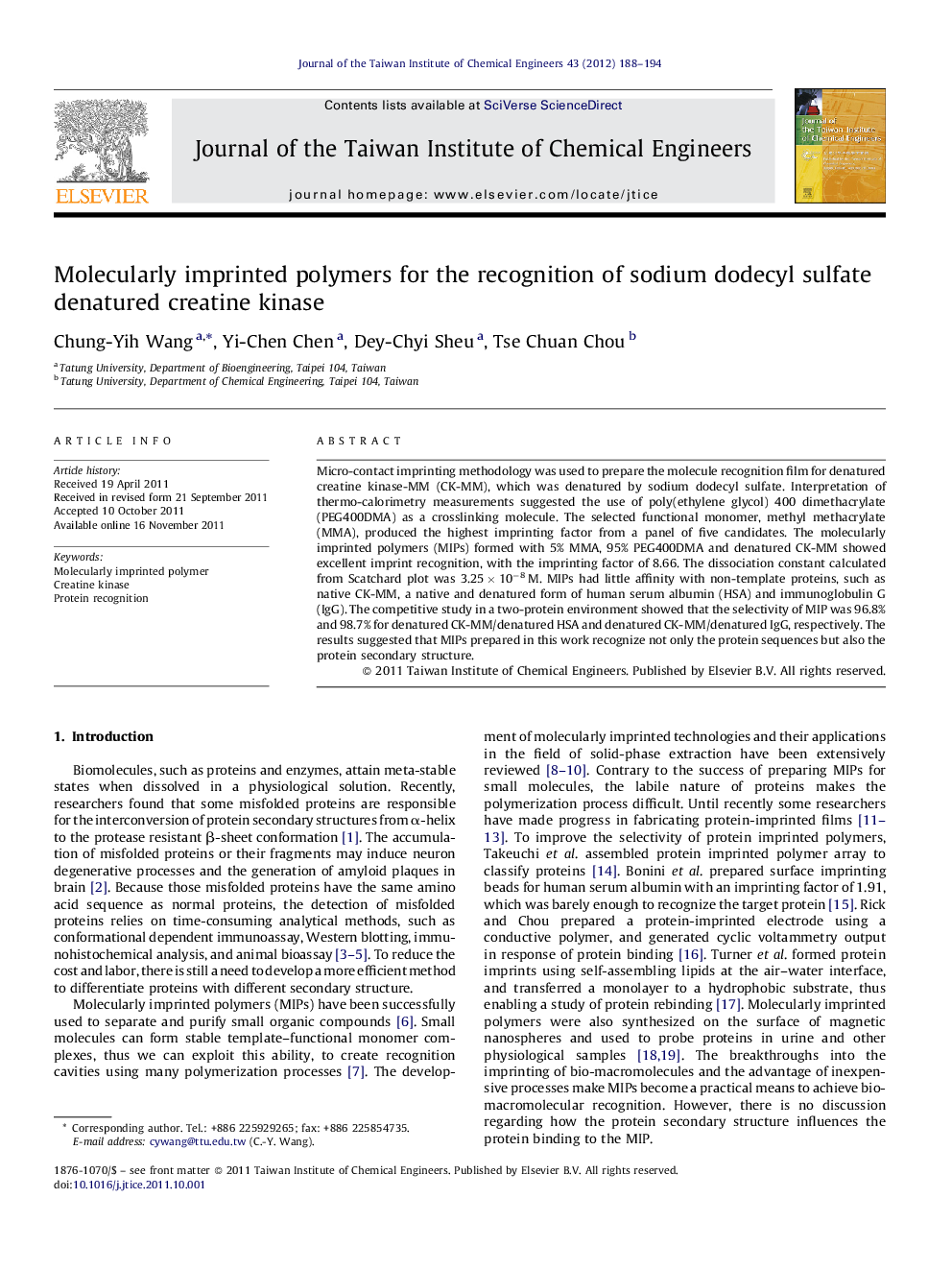| Article ID | Journal | Published Year | Pages | File Type |
|---|---|---|---|---|
| 691890 | Journal of the Taiwan Institute of Chemical Engineers | 2012 | 7 Pages |
Micro-contact imprinting methodology was used to prepare the molecule recognition film for denatured creatine kinase-MM (CK-MM), which was denatured by sodium dodecyl sulfate. Interpretation of thermo-calorimetry measurements suggested the use of poly(ethylene glycol) 400 dimethacrylate (PEG400DMA) as a crosslinking molecule. The selected functional monomer, methyl methacrylate (MMA), produced the highest imprinting factor from a panel of five candidates. The molecularly imprinted polymers (MIPs) formed with 5% MMA, 95% PEG400DMA and denatured CK-MM showed excellent imprint recognition, with the imprinting factor of 8.66. The dissociation constant calculated from Scatchard plot was 3.25 × 10−8 M. MIPs had little affinity with non-template proteins, such as native CK-MM, a native and denatured form of human serum albumin (HSA) and immunoglobulin G (IgG). The competitive study in a two-protein environment showed that the selectivity of MIP was 96.8% and 98.7% for denatured CK-MM/denatured HSA and denatured CK-MM/denatured IgG, respectively. The results suggested that MIPs prepared in this work recognize not only the protein sequences but also the protein secondary structure.
